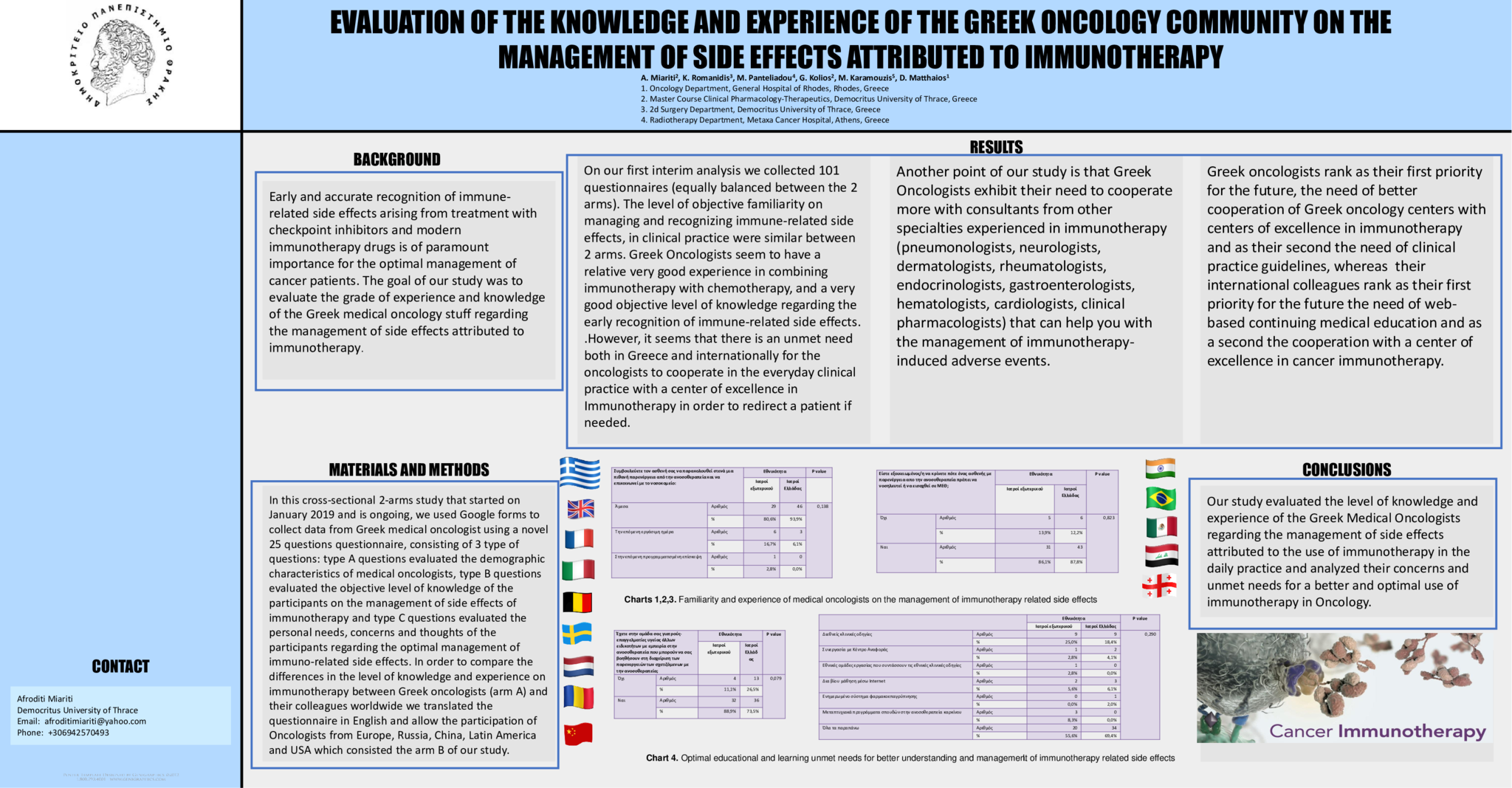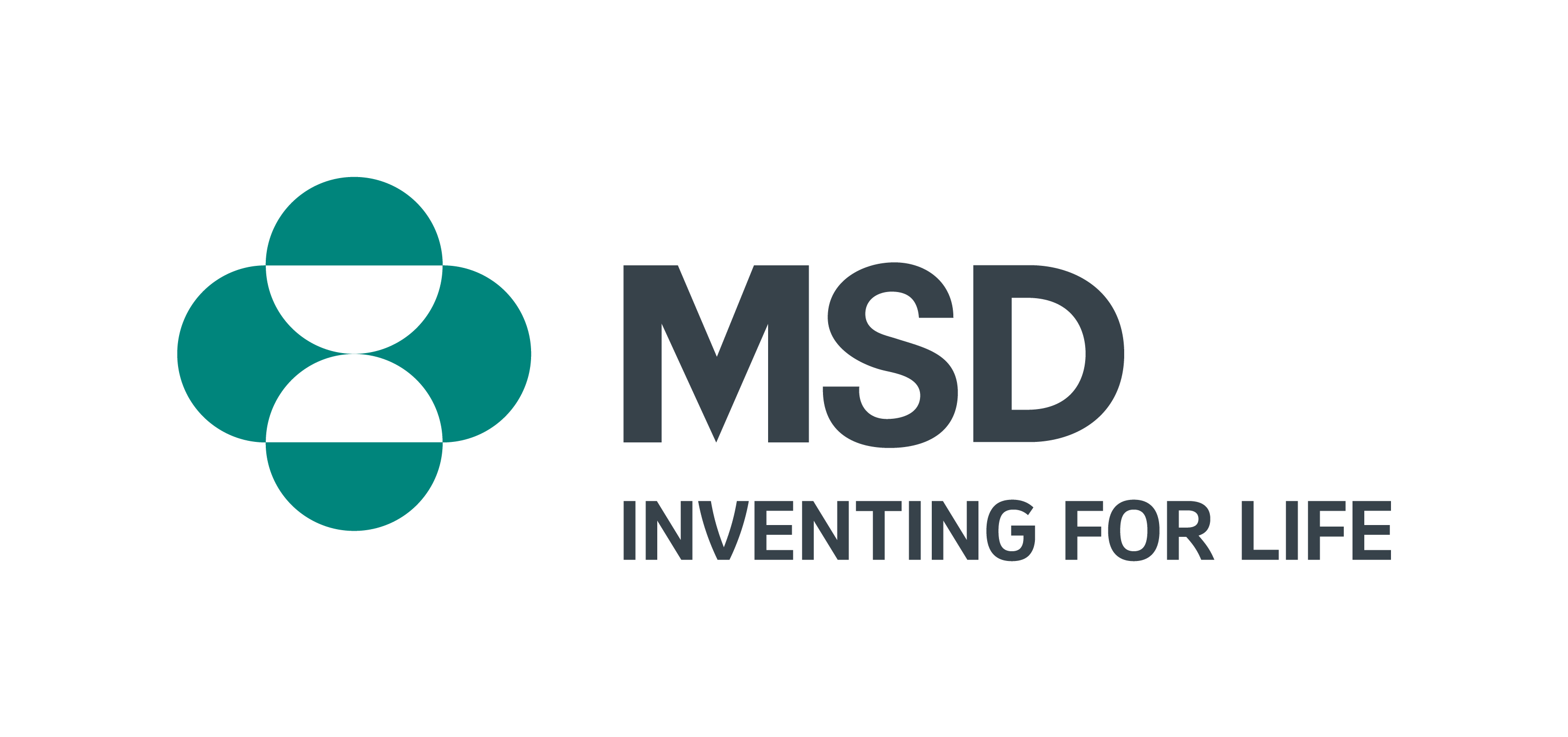BACKGROUND: Early and accurate recognition of immune-related side effects arising from treatment with checkpoint inhibitors and modern immunotherapy drugs is of paramount importance for the optimal management of cancer patients. The goal of our study was to evaluate the grade of experience and knowledge of the Greek medical oncology stuff regarding the management of side effects attributed to immunotherapy. METHODS: In this cross-sectional 2-arms study that started on January 2019 and is ongoing, we used Google forms to collect data from Greek medical oncologist using a novel 25 questions questionnaire, consisting of 3 type of questions: type A questions evaluated the demographic characteristics of medical oncologists, type B questions evaluated the objective level of knowledge of the participants on the management of side effects of immunotherapy and type C questions evaluated the personal needs, concerns and thoughts of the participants regarding the optimal management of immuno-related side effects. In order to compare the differences in the level of knowledge and experience on immunotherapy between Greek oncologists (arm A) and their colleagues worldwide we translated the questionnaire in English and allow the participation of Oncologists from Europe, Russia, China, Latin America and USA which consisted the arm B of our study RESULTS: On our first interim analysis we collected 101 questionnaires (equally balanced between the 2 arms). The level of objective familiarity on managing and recognizing immune-related side effects, in clinical practice were similar between 2 arms. Greek Oncologists seem to have a relative very good experience in combining immunotherapy with chemotherapy, and a very good objective level of knowledge regarding the early recognition of immune-related side effects. .However, it seems that there is an unmet need both in Greece and internationally for the oncologists to cooperate in the everyday clinical practice with a center of excellence in Immunotherapy in order to redirect a patient if needed. Another point of our study is that Greek Oncologists point their need to cooperate more with consultants from other specialties experienced in immunotherapy (pneumonologists, neurologists, dermatologists, rheumatologists, endocrinologists, gastroenterologists, hematologists, cardiologists, clinical pharmacologists) that can help you to the management of immunotherapy-induced adverse events. Greek oncologist rank as their first priority for the future, the need of better cooperation of Greek oncology centers with centers of excellence in immunotherapy and as second the need of clinical practice guidelines, while their international colleagues rank as their first priority for the future the need of web-based continuing medical education and as a second the cooperation with a center of excellence in cancer immunotherapy. CONCLUSIONS: Our study evaluated the level of knowledge and experience of the Greek Medical Oncologists regarding the management of side effects attributed to the use of immunotherapy in the daily practice and analyzed their concerns and unmet needs for a better and optimal use of immunotherapy in Oncology.
- 30 προβολές





